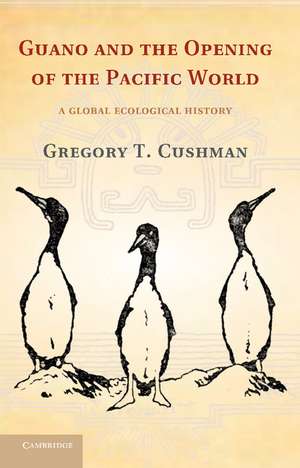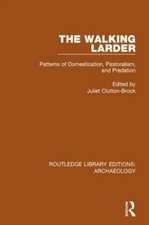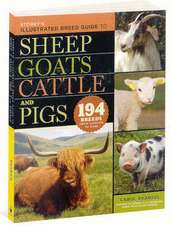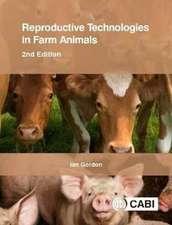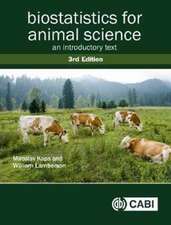Guano and the Opening of the Pacific World: A Global Ecological History: Studies in Environment and History
Autor Gregory T. Cushmanen Limba Engleză Paperback – 2014
| Toate formatele și edițiile | Preț | Express |
|---|---|---|
| Paperback (1) | 206.52 lei 22-36 zile | |
| Cambridge University Press – 2014 | 206.52 lei 22-36 zile | |
| Hardback (1) | 758.35 lei 43-57 zile | |
| Cambridge University Press – 24 mar 2013 | 758.35 lei 43-57 zile |
Din seria Studies in Environment and History
-
 Preț: 137.74 lei
Preț: 137.74 lei -
 Preț: 188.70 lei
Preț: 188.70 lei -
 Preț: 234.83 lei
Preț: 234.83 lei -
 Preț: 156.89 lei
Preț: 156.89 lei -
 Preț: 204.55 lei
Preț: 204.55 lei -
 Preț: 147.64 lei
Preț: 147.64 lei -
 Preț: 243.02 lei
Preț: 243.02 lei -
 Preț: 201.67 lei
Preț: 201.67 lei - 14%
 Preț: 771.56 lei
Preț: 771.56 lei -
 Preț: 231.54 lei
Preț: 231.54 lei -
 Preț: 191.12 lei
Preț: 191.12 lei -
 Preț: 239.72 lei
Preț: 239.72 lei -
 Preț: 231.59 lei
Preț: 231.59 lei -
 Preț: 200.99 lei
Preț: 200.99 lei -
 Preț: 199.05 lei
Preț: 199.05 lei -
 Preț: 431.15 lei
Preț: 431.15 lei -
 Preț: 322.04 lei
Preț: 322.04 lei -
 Preț: 204.48 lei
Preț: 204.48 lei -
 Preț: 299.23 lei
Preț: 299.23 lei -
 Preț: 332.81 lei
Preț: 332.81 lei -
 Preț: 239.55 lei
Preț: 239.55 lei -
 Preț: 225.79 lei
Preț: 225.79 lei -
 Preț: 285.93 lei
Preț: 285.93 lei -
 Preț: 270.25 lei
Preț: 270.25 lei -
 Preț: 275.85 lei
Preț: 275.85 lei -
 Preț: 323.05 lei
Preț: 323.05 lei -
 Preț: 208.68 lei
Preț: 208.68 lei - 11%
 Preț: 432.64 lei
Preț: 432.64 lei -
 Preț: 252.69 lei
Preț: 252.69 lei -
 Preț: 278.72 lei
Preț: 278.72 lei -
 Preț: 272.97 lei
Preț: 272.97 lei - 11%
 Preț: 528.82 lei
Preț: 528.82 lei - 14%
 Preț: 756.70 lei
Preț: 756.70 lei -
 Preț: 264.09 lei
Preț: 264.09 lei -
 Preț: 440.76 lei
Preț: 440.76 lei
Preț: 206.52 lei
Nou
Puncte Express: 310
Preț estimativ în valută:
39.52€ • 41.36$ • 32.89£
39.52€ • 41.36$ • 32.89£
Carte disponibilă
Livrare economică 10-24 martie
Preluare comenzi: 021 569.72.76
Specificații
ISBN-13: 9781107655966
ISBN-10: 110765596X
Pagini: 416
Ilustrații: 16 b/w illus. 4 maps
Dimensiuni: 153 x 228 x 25 mm
Greutate: 0.61 kg
Editura: Cambridge University Press
Colecția Cambridge University Press
Seria Studies in Environment and History
Locul publicării:New York, United States
ISBN-10: 110765596X
Pagini: 416
Ilustrații: 16 b/w illus. 4 maps
Dimensiuni: 153 x 228 x 25 mm
Greutate: 0.61 kg
Editura: Cambridge University Press
Colecția Cambridge University Press
Seria Studies in Environment and History
Locul publicării:New York, United States
Cuprins
List of illustrations; Preface; Abbreviations and acronyms; Prologue; 1. Introduction; 2. The guano age; 3. Neo-ecological imperialism; 4. Where is Banaba?; 5. Conservation and the technocratic ideal; 6. The most valuable birds in the world; 7. When the Japanese came to dinner; 8. The road to survival; 9. Guano and the Blue Revolution; 10. Conclusion; Select bibliography; Index.
Recenzii
'This thoroughly researched book is unique and ambitious in its temporal scope and interpretation. The little-known story of guano - the fertilizer based on seabirds' excrement that has marked much of Peruvian history - and the fascinating seabirds that produced it, acquire new meanings, new actors, and a global dimension; illuminating the intersection of nature, politics, and science from a contemporary perspective.' Marcos Cueto, Instituto de Estudios Peruanos
'Cushman's Guano and the Opening of the Pacific World tells the fascinating story of guano and the making of the modern world in a narrative that weaves together the geography and biology of the Pacific; political, economic, and agricultural history; and ecology, moving skilfully from the international politics of development and the technocratic ideal to the people who helped change our ideas and our understanding. A model of environmental history, it makes connections on every level and offers unexpected insights that will enrich any reader's understanding.' Thomas R. Dunlap, Texas A and M University
'Cushman demonstrates that guano, through its multitude of interconnections with nitrogen, phosphate, explosives, agriculture, and politics, provides an unexpected prism through which to view and understand human history, especially in the last two hundred years.' Don Garden, University of Melbourne
'Guano and the Opening of the Pacific World is a bold and original contribution to global environmental history. Cushman shows compellingly how an unlikely commodity - guano - helped create the modern Pacific world and usher in the Anthropocene. This is global history from the ground up, moving from the lives of specific individuals up to the sweeping panorama of global environmental change and the Pacific world. Cushman shows the vital role of this 'peripheral' world of these Pacific guano islands in shaping global landscapes, global economies, and even global ecological thought. The story of guano in the modern era is, as [he] capably shows, ultimately the story of how modern societies have pursued the elusive goals of ecological and economic sustainability.' Stuart McCook, University of Guelph, Canada
'Guano and the Opening of the Pacific World is a tour de force that deserves a wide audience. Cushman covers an expansive range of topics that offers persuasive arguments that challenge many aspects of received wisdom regarding natural versus cultural, indigenous versus colonial, island versus mainland, and local versus global.' Science
'… illuminating …' The Times Literary Supplement
'Central themes are clearly articulated in this carefully researched and well-crafted work. These include the importance of the Pacific world to the history of Australia, Japan, and the Americas; the emergence of the modern Pacific world; the 'agency of nature' in that process; the link between the Pacific Islands and the Industrial Revolution; the 'cultural influence' of resulting transformations; the 'experts' who caused ensuing problems; and ethical consequences. This global ecological study succeeds admirably in detailing the last two hundred years.' R. Scaglion, Choice
'Cushman traces multiple overlapping stories - he elaborates a sevenfold argument in the introduction - and his approach offers a pioneering model for future studies whose subjects cannot be contained by traditional conceptual (or physical) boundaries. … [A] provocative example of what global environmental history can be, both broad in its geographical and temporal reach and firmly anchored in local histories and rich archival sources culled from research on several continents. Guano and the Opening of the Pacific World makes a vital contribution to Peruvian historiography, Pacific world studies, and the history of conservation.' Hispanic American Historical Review
'Diligently pursuing research in archives, and reading aggressively across disciplines, Cushman has delivered a majestic overview of not just a coastal resource, but of the emergence of the modern world in ecological terms.' Journal of Historical Geography
'… scholars everywhere will find this a highly intelligent and provocative book, well worth reading and pondering.' Paul Gootenberg, The Americas
'… the book includes some striking stories and challenging observations, and in the end it draws a compelling conclusion.' Sam White, Technology and Culture
'This remarkable book covers tremendous ground. Drawing on archival research in three languages over four continents and an enviable command of both the history and science of the environment, Gregory T. Cushman makes a compelling case that guano fundamentally shaped global economic development writ large. This is therefore an important book.' Ariel Ron, Journal of American History
'… [an] impressively vast book, which follows guano through time and space and intertwines environmental, social, intellectual, economic and climate histories with the history of colonialism, science, migration and global development … The book is all the more noteworthy as, despite the massive breadth of the book's subject matter, Cushman remains attentive to the people in this history. The book introduces numerous individuals, from explorers, scientific experts, technocrats and colonial administrators through to the workers who mined the guano, nitrates and phosphates and members of the island nations displaced by the mining. All round, this is one of the most impressive books published in the emerging field of global environmental history.' Jim Clifford, Reviews in History
'This is as much an environmental history, as it is the history of environmental thought in the Pacific basin. Cushman is an excellent writer, bringing in a variety of perspectives, from scientists, environmental evangelists, politicians, economists and commodity traders, as well as island populations and bird-watchers, going so far as to imagine the perspective of the guano-producing birds themselves. In the hands of a less-talented writer this might have become quite confusing, but instead the persona (and animal) perspectives help anchor and reinforce the tight knit of humankind's relationship with its environment.' Juliette Levy, EH.net
'Cushman's Guano and the Opening of the Pacific World tells the fascinating story of guano and the making of the modern world in a narrative that weaves together the geography and biology of the Pacific; political, economic, and agricultural history; and ecology, moving skilfully from the international politics of development and the technocratic ideal to the people who helped change our ideas and our understanding. A model of environmental history, it makes connections on every level and offers unexpected insights that will enrich any reader's understanding.' Thomas R. Dunlap, Texas A and M University
'Cushman demonstrates that guano, through its multitude of interconnections with nitrogen, phosphate, explosives, agriculture, and politics, provides an unexpected prism through which to view and understand human history, especially in the last two hundred years.' Don Garden, University of Melbourne
'Guano and the Opening of the Pacific World is a bold and original contribution to global environmental history. Cushman shows compellingly how an unlikely commodity - guano - helped create the modern Pacific world and usher in the Anthropocene. This is global history from the ground up, moving from the lives of specific individuals up to the sweeping panorama of global environmental change and the Pacific world. Cushman shows the vital role of this 'peripheral' world of these Pacific guano islands in shaping global landscapes, global economies, and even global ecological thought. The story of guano in the modern era is, as [he] capably shows, ultimately the story of how modern societies have pursued the elusive goals of ecological and economic sustainability.' Stuart McCook, University of Guelph, Canada
'Guano and the Opening of the Pacific World is a tour de force that deserves a wide audience. Cushman covers an expansive range of topics that offers persuasive arguments that challenge many aspects of received wisdom regarding natural versus cultural, indigenous versus colonial, island versus mainland, and local versus global.' Science
'… illuminating …' The Times Literary Supplement
'Central themes are clearly articulated in this carefully researched and well-crafted work. These include the importance of the Pacific world to the history of Australia, Japan, and the Americas; the emergence of the modern Pacific world; the 'agency of nature' in that process; the link between the Pacific Islands and the Industrial Revolution; the 'cultural influence' of resulting transformations; the 'experts' who caused ensuing problems; and ethical consequences. This global ecological study succeeds admirably in detailing the last two hundred years.' R. Scaglion, Choice
'Cushman traces multiple overlapping stories - he elaborates a sevenfold argument in the introduction - and his approach offers a pioneering model for future studies whose subjects cannot be contained by traditional conceptual (or physical) boundaries. … [A] provocative example of what global environmental history can be, both broad in its geographical and temporal reach and firmly anchored in local histories and rich archival sources culled from research on several continents. Guano and the Opening of the Pacific World makes a vital contribution to Peruvian historiography, Pacific world studies, and the history of conservation.' Hispanic American Historical Review
'Diligently pursuing research in archives, and reading aggressively across disciplines, Cushman has delivered a majestic overview of not just a coastal resource, but of the emergence of the modern world in ecological terms.' Journal of Historical Geography
'… scholars everywhere will find this a highly intelligent and provocative book, well worth reading and pondering.' Paul Gootenberg, The Americas
'… the book includes some striking stories and challenging observations, and in the end it draws a compelling conclusion.' Sam White, Technology and Culture
'This remarkable book covers tremendous ground. Drawing on archival research in three languages over four continents and an enviable command of both the history and science of the environment, Gregory T. Cushman makes a compelling case that guano fundamentally shaped global economic development writ large. This is therefore an important book.' Ariel Ron, Journal of American History
'… [an] impressively vast book, which follows guano through time and space and intertwines environmental, social, intellectual, economic and climate histories with the history of colonialism, science, migration and global development … The book is all the more noteworthy as, despite the massive breadth of the book's subject matter, Cushman remains attentive to the people in this history. The book introduces numerous individuals, from explorers, scientific experts, technocrats and colonial administrators through to the workers who mined the guano, nitrates and phosphates and members of the island nations displaced by the mining. All round, this is one of the most impressive books published in the emerging field of global environmental history.' Jim Clifford, Reviews in History
'This is as much an environmental history, as it is the history of environmental thought in the Pacific basin. Cushman is an excellent writer, bringing in a variety of perspectives, from scientists, environmental evangelists, politicians, economists and commodity traders, as well as island populations and bird-watchers, going so far as to imagine the perspective of the guano-producing birds themselves. In the hands of a less-talented writer this might have become quite confusing, but instead the persona (and animal) perspectives help anchor and reinforce the tight knit of humankind's relationship with its environment.' Juliette Levy, EH.net
Notă biografică
Descriere
This book traces the history of bird guano, demonstrating how this unique commodity helped unite the Pacific Basin with the industrialized world.
